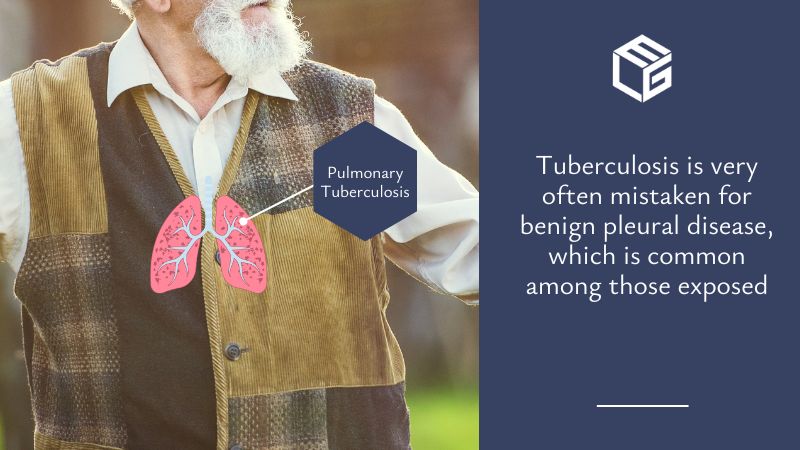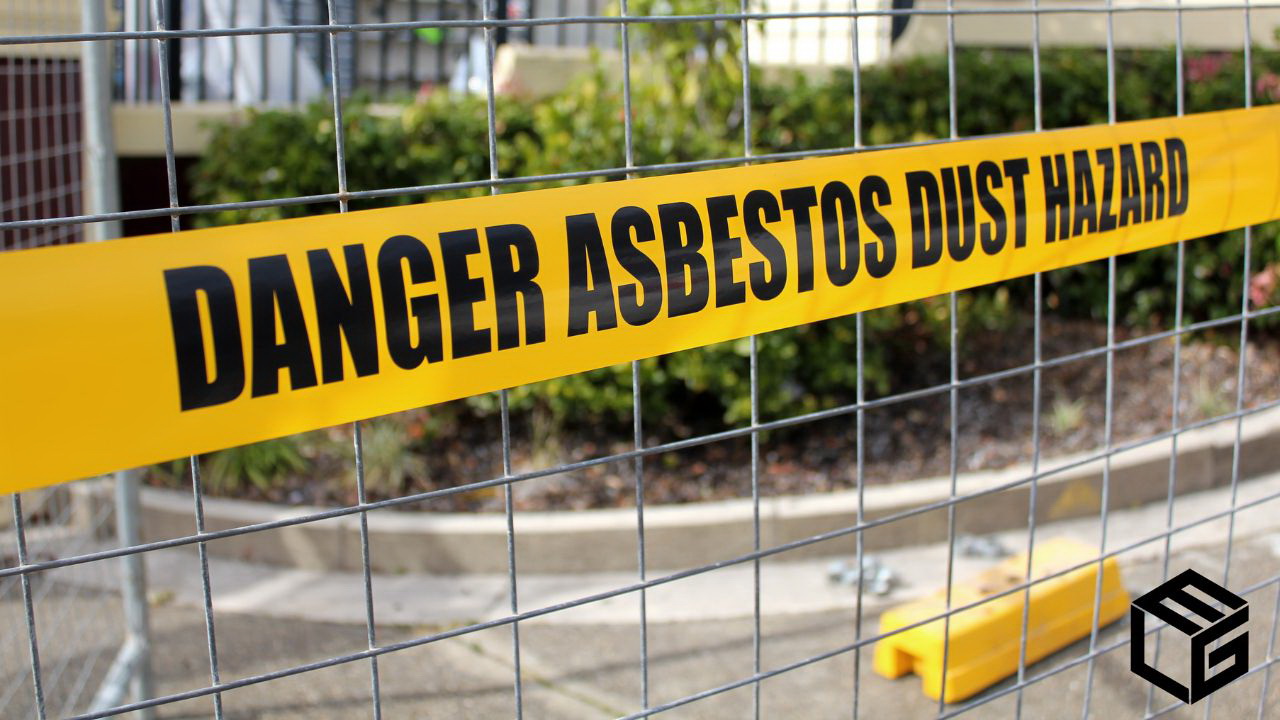
Posted on October 21st, 2019

An association between pulmonary tuberculosis and asbestosis has been set up by virtue of pulmonary tuberculosis being diagnosed along with asbestos in nearly 3.8%-36% of the cases. According to the CDC, about 9,025 cases of tuberculosis were reported in the United States in 2018.
Tuberculosis is also the 7th leading cause of death worldwide. In people with a history of asbestos exposure, delays in diagnosis or even misdiagnosis are common because most lung diseases caused by asbestos fibers mimic clinical as well as radiological features of tuberculosis. Still, it is important to know that if you have tuberculosis, you are not eligible to file a claim for asbestos exposure, as the disease does not have a strong association with asbestos exposure.
Tuberculosis - easily mistaken for benign pleural disease

Though there is no direct link between asbestos exposure and tuberculosis, it is very often mistaken for benign pleural disease, which is common among those exposed to asbestos. This happens due to the presence of collagen deposits in the lungs that may calcify.
Most of the time, there will not be any symptoms or evidence suggesting that the plaque can turn out to be malignant lesions.
The benign pleural disease develops in nearly half of those who have significantly been exposed to asbestos. But, the plaque deposits are very difficult to spot and are almost invisible on an X-ray, and only 50% are found on a CT scan. The plaque formations become clear only after one or two decades after exposure, and effusions may also develop over time. In conditions where exudative pleural effusions develop, a biopsy may be needed to differentiate whether the condition is actually tuberculosis. If pain is present, then there is a possibility that the condition is actually malignant mesothelioma.
Often, malignant mesothelioma goes undiagnosed until it reaches advanced stages, and because of this, the prognosis of the disease is very poor. In fact, if mesothelioma symptoms do appear, it is likely to be considered to be due to other conditions such as tuberculosis, pneumonia, and influenza. Thus, there is a significant danger of misdiagnosis because of non-specific symptoms.
What makes tuberculosis and mesothelioma similar?
There are various reasons why mesothelioma is often misdiagnosed as tuberculosis. The reasons include the fact that both these conditions:
- Are quite rarely occurring.
- Are associated with chest pain, night sweats, shortness of breath, persistent dry cough, and unexpected weight loss.
- Leave patients with difficulty in swallowing and coughing up blood.
- Reveal lumps under the skin of the chest.
A second opinion is very important
Misdiagnosis is common in asbestos-exposure victims. We strongly advise people with a history of asbestos exposure to undergo a biannual medical examination, which avoids late detection of any unfortunate condition that has developed. Most commonly, tuberculosis causes acute pleuritis, which leads to diffuse pleural thickening that is similar to asbestos-related pleural thickening.
Therefore, often, an asbestos-related pleural thickening is misinterpreted as tuberculosis. It may be challenging to differentiate between tuberculosis and asbestos-related lung diseases even for experts. For this reason, we encourage seeking a second opinion, preferably from a specialist in asbestos-related diseases.
If your cancer is related to asbestos exposure, you are entitled to receive compensation
With over 30 years of experience in pursuing compensation for victims of asbestos exposure and their surviving family members, our attorneys will help you receive the benefits you deserve for your physical and emotional suffering. If you have cancer that has a strong association with asbestos exposure, such as lung cancer or mesothelioma, you should contact our diligent attorneys.
If you are too ill to partake in the legal process, a family member can step in and help you gather the necessary documents as evidence to support your claim. The discussion with our legal team over the phone will take approximately 2 hours, as we must thoroughly check your eligibility and collect all the necessary information concerning your asbestos exposure and your related diagnosis. If you do not have enough evidence, our legal team will help you gather the necessary proof to accompany your claim, whether it will be filed with asbestos trust funds or with the VA. For additional information, we strongly encourage you to contact our law firm, and we will promptly answer your questions.
